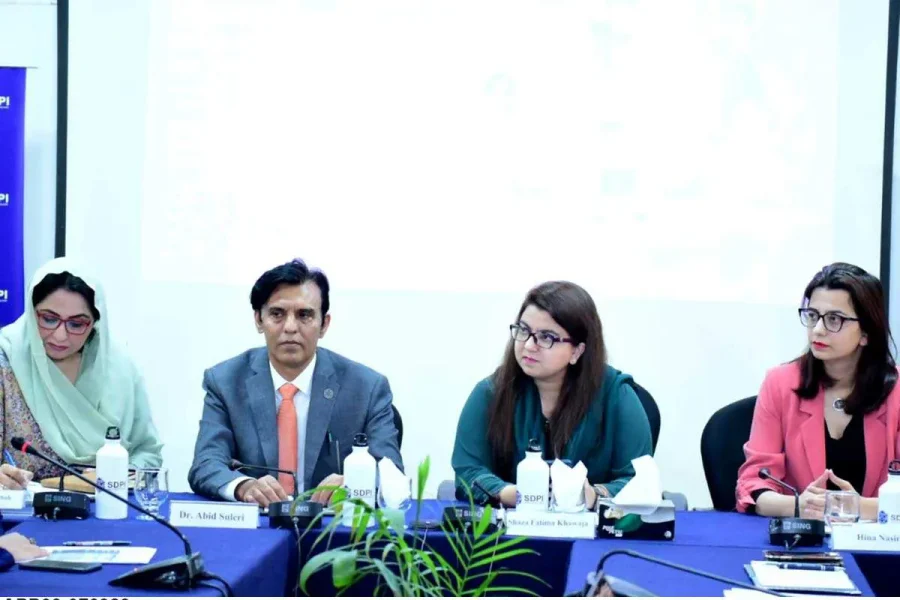Zubair Qureshi
As part of a wider campaign against domestic violence, the National Commission for Human Rights (NCHR), in collaboration with the UN Women, launched a ‘Policy Brief on Domestic Violence’ on Tuesday.
The policy brief provides a detailed view how domestic violence affects Pakistani citizens, particularly women.
Besides, the policy brief analyses possible interventions that can be made against domestic violence, citing the establishment of federal domestic violence legislation as a crucial step in addressing this ‘urgent matter.’
The brief also examines the international commitments made by Pakistan and provides recommendations for legal and socio-economic actions that can be taken by the government to tackle the issue.
Federal Minister for Climate Change Sherry Rehman in her keynote address said that according to research 90 per cent of women in Pakistan face one or the other form of domestic violence but 50 per cent of them do not report that. “An unfortunately, all this data is just the tip of the iceberg,” she said adding that domestic violence is more about cultural and social norms.
“Law and policy matter but it largely depends on how the society regards its vulnerable.” She appreciated the #GharKiBaatNahi for the campaign and said that it is an appropriate hashtag which applies to every social class and every country in the world.”
Speaking on this occasion, NCHR Chairperson Rabiya Javeri Agha said that following nationwide consultation and meetings with various stakeholders from civil society and state institutions, the NCHR took note of the alarming rise in domestic violence cases in the country and lack of protection for women who find themselves in an increasingly precarious position as Pakistan reels from COVID-19 pandemic, the devastating floods and now rising inflation, all which disproportionally affect women far more than their male counterparts.










